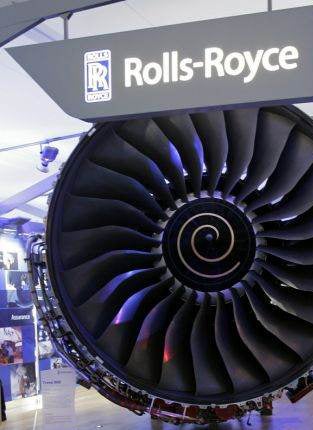Superjumbo engine fire led to 'cascade of failures'

The cascade of errors suffered by an Australian airliner were described as unprecedented yesterday, as the British manufacturer of its engines struggled to cope with increasing criticism from within the industry.
The pilots of a Qantas A380 superjumbo faced 54 separate warning alarms when one of its Rolls-Royce engines disintegrated and sent shrapnel ripping through the aircraft's wing two weeks ago, the deputy president of the Australian and International Pilots Association has said.
Richard Woodward, himself a Qantas A380 pilot, said that the "number of failures is unprecedented," adding: "There is probably a one in 100 million chance to have all that go wrong."
Mr Woodward outlined to Associated Press how two of the airliner's fuel tanks became punctured, causing a leak that led to an increasing imbalance between the port and starboard sides of the aircraft. This was compounded by it quickly becoming tail heavy, because electrical problems stopped the crew from pumping fuel forward. The risk of this causing the aeroplane to lose lift, stall and crash was the greatest threat, according to safety experts.
It was due to luck as much as skill that the aircraft stayed in the air given the severity of the crisis it faced; the captain happened to be undergoing his annual test, meaning that a total of five experienced pilots – including three captains – were on board.
"I don't think any crew in the world would have been trained to deal with the number of different issues this crew faced," Mr Woodward said.
Meanwhile an internal Airbus memo yesterday confirmed that the pilots had to deal with a "cascade of system failures," heaping further pressure on Rolls-Royce. The Derby-based company, whose value has dropped by £930m since the Qantas incident, has earned growing and unwelcome comparisons with BP for a wobbly media strategy which is blamed for generating uncertainty about the implications of the engine failure and thus contributing to a 10 per cent fall in its share price.
But while BP was criticised for its spectacular mismanagement of the early days of the Gulf of Mexico oil spill by being seen to try to avoid blame and unguarded comments by the chief executive, Tony Hayward, the problem for Rolls-Royce and its boss, Sir John Rose, has been its almost monastic public silence on the problems facing its Trent 900 engines.
The perception that Rolls-Royce is allowing others to frame the terms of the debate about the A380 engine failure was strengthened yesterday when it fell to Qantas's chief executive, Alan Joyce, to announce that up to 40 Trent 900s will need to be replaced worldwide – representing about half of the Rolls-Royce engines that power the Airbus superjumbo fleet. The airline has kept its superjumbo fleet grounded since the incident.
In a separate development, the aircraft maker said it would be seeking compensation from Rolls-Royce for any disruption to the production of the A380 caused by the need to replace or modify Trent 900s. Rolls-Royce made no immediate comment on the claim that it will have to make 40 new engines, and has said only that it is likely it would have to replace a single component on each of its Trent 900s "over a period of time".
Analysts point out that the financial and political damage to Rolls-Royce is very far from the catastrophe suffered by BP. Indeed, shares in the company yesterday closed 1.8 per cent higher on the back of the announcement of new aviation and shipping deals. But there is concern that the aviation company has been too quiet.
Julian Tolley, of the stockbroker HB Markets, said: "I think Rolls-Royce has been remiss in the level of information that it has put into the market and the public domain.
"Of course it has to check and be sure of the cause of this problem. But we have a situation where the most authoritative information about what happened is still coming from websites and eye-witnesses."
In the meantime, there is little sign that the reserved corporate culture will be abandoned. The company yesterday declined to respond to an email asking whether its media strategy had been too defensive.
Subscribe to Independent Premium to bookmark this article
Want to bookmark your favourite articles and stories to read or reference later? Start your Independent Premium subscription today.

Join our commenting forum
Join thought-provoking conversations, follow other Independent readers and see their replies